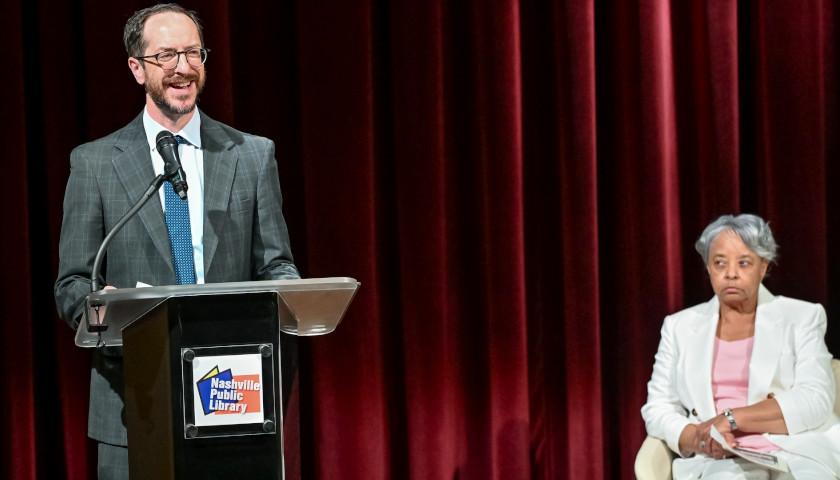Corey DeAngelis, a school choice activist and senior fellow at the American Federation for Children, detailed how implementing a universal school choice program in Tennessee could motivate public schools to respect and strive to meet parents’ expectations in order to compete with schools attracting families with vouchers.
On Tuesday, state lawmakers on the K-12 Subcommittee voted 6-2 to pass the House version of Governor Bill Lee’s proposed school voucher program, which would make Education Freedom Scholarships worth $7,000 available to students in every county of the state.
DeAngelis, noting how some conservative state lawmakers in the Tennessee General Assembly have come out against school choice, said the argument against vouchers “is not very popular with just about anybody,” adding that parents should be the “primary decision makers” in their child’s education.
“The parents should be the primary decision makers for the upbringing of their own children. They’re in charge,” DeAngelis explained on Wednesday’s edition of The Tennessee Star Report with Michael Patrick Leahy. “To come out against that and to come out in favor of this socialist ideology that the kids belong to the government and the money meant for educating them belongs to the government institution, that is not very popular with just about anybody but particularly not popular with conservatives who had their eyes opened over the past few years when they saw what was happening in so many of the public school classrooms.”
“Some of them are fine, but some of them were injecting CRT into the classroom. Now we have a lot of issues with gender ideology…Families want options. They don’t want to go to a school board meeting where they’re told that they can’t read the material because it’s too obscene for the meeting, but it’s okay for the classroom. The families are getting their mics cut off,” DeAngelis added. “We even had one instance of the National School Boards Association implying that parents should be investigated for domestic terrorism. That was a whole problem because parents were showing up at school board meetings disagreeing with the policies in the public schools.”
DeAngelis went on to explain how the availability of vouchers among families would give public schools “an incentive to care” about parents and students, treating them as “customers” instead of a “nuisance.”
“If you have the ability to vote with your feet, if you can take your money with you, that school board is probably going to have an incentive to listen to you instead of cutting off your mic or labeling you as an evil person,” DeAngelis explained. “That really gives families true agency in that relationship between themselves or children and the school and that gives the schools an incentive to care about them and to treat them as customers, as opposed to treating them like a nuisance.”
– – –
Kaitlin Housler is a reporter at The Tennessee Star and The Star News Network. Follow Kaitlin on X / Twitter.




